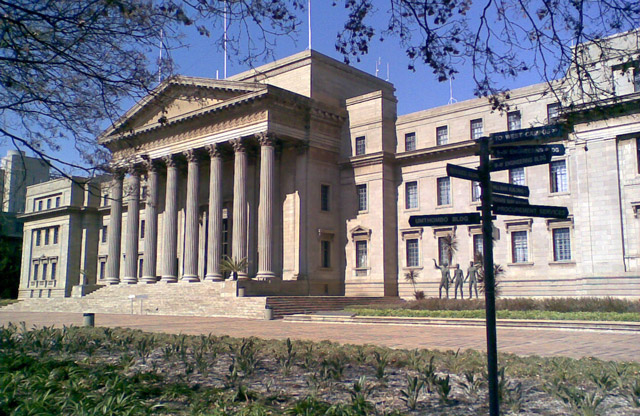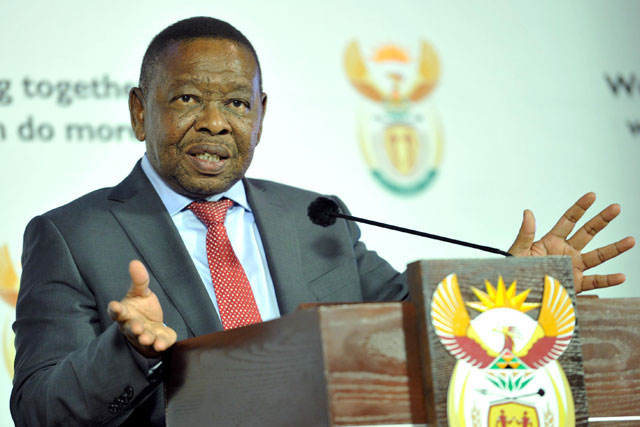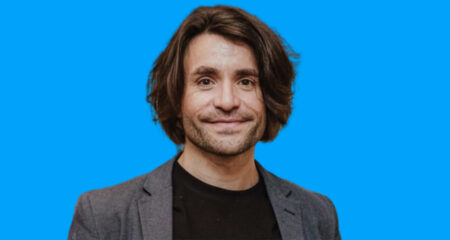
Police in patrol cars slowly cruise around the University of the Witwatersrand’s eerily quiet campus in Johannesburg as a handful of students scurry to the library to prepare for year-end examinations they may not be able to take.
Classes at the institution of more than 33 000 students and several others across South Africa were suspended this month after protesters demanding free education clashed with police officers firing stun grenades and rubber bullets.
The demonstrations erupted after the government announced that universities will determine their own tuition rates for 2017, with increases capped at 8%, while the state will increase subsidies for poorer students.
With their finances already stretched by the government’s decision to limit tuition costs this year after student riots in 2015, the universities say they may not be able to continue operating and the entire higher education system is at risk of grinding to a halt. That would spell disaster for an economy already contending with skills shortages and a 27% unemployment rate.
“We are very anxious,” Ahmed Bawa, the CEO of Universities South Africa, a representative body, said by phone by Pretoria. “There is no possibility as far as I can tell that the state will find the money to meet the no-fee demand. The alternative is that universities simply close down and say: ‘We’ll open again in January’.”
If classes don’t resume soon, the University of Cape Town, the country’s oldest and top-ranked tertiary learning institution, may be unable to complete its academic programme this year and students would then have to complete their courses in 2017, leaving no room for a new students, according to the university’s vice chancellor, Max Price.
“This is a national crisis, not just in higher education,” Price told reporters on Wednesday. “It affects the economy more generally, it affects the reputation of the country.”
Other universities caught up in the turmoil include Rhodes University and the Nelson Mandela Metropolitan University in the south of the country, the University of Limpopo in the north, and the University of Pretoria in the capital.
South Africa currently spends about 5,3% of its national budget on post-school education and training, with R223,9bn allocated for the three years through March 2019. That compares to 6,7% for the police services. Universities get about half of their funding from the government and the rest from fees and grants. The state plans to subsidise tuition for students from homes with annual incomes of up to R600 000.
Education challenges
“We need to ensure that those who can afford to pay must pay,” higher education minister Blade Nzimande told reporters in Pretoria on 19 September. “Starving our universities and colleges is not the way to go. Any funding that government mobilises to support the pressing challenges in higher education, it would need to re-prioritise from other programmes.”
The announcement sparked off a wave of protests at universities across the country that Nzimande estimated this week had resulted in damage worth more than R600m. President Jacob Zuma instructed his security ministers to clamp down on the violence, Jeff Radebe, a minister in the presidency, told reporters Thursday.

While Hulisani Tala, a 20-year-old construction studies student at Wits, said he didn’t agree with the violence, he supports the campaign for free education. Tuition ranges from R29 620 to R58 580/year at the university.
“The fees are very high,” Tala said in an interview. “There must be a sacrifice from the government.”
About 14 of South Africa’s 26 public universities are already technically insolvent, and the longer the crisis goes on, the worse it will get, said Gerald Ouma, the director for institutional planning at the University of Pretoria.
“When you’ve got prolonged instability, it destroys the higher education system,” Ouma said by phone. “The top scholars leave the system, parents who can afford to take their children out of the public university system take them out and it becomes very difficult to rebuild.”
The government needs to show it’s acting in good faith by freezing fees this year as a first step toward providing free higher education, said Mandlakazi Zilwa, a 20-year-old film and television student at Wits.
“We need to walk away with something,” he said. “The more that they don’t respond to our demands, the longer the strike is prolonged. We all want to graduate. But if we are not saying something together as a collective of students then the government’s going to find no reason why they should respond. I feel like the government is not trying to bridge the gap.”
- Reported with assistance from Paul Vecchiatto




